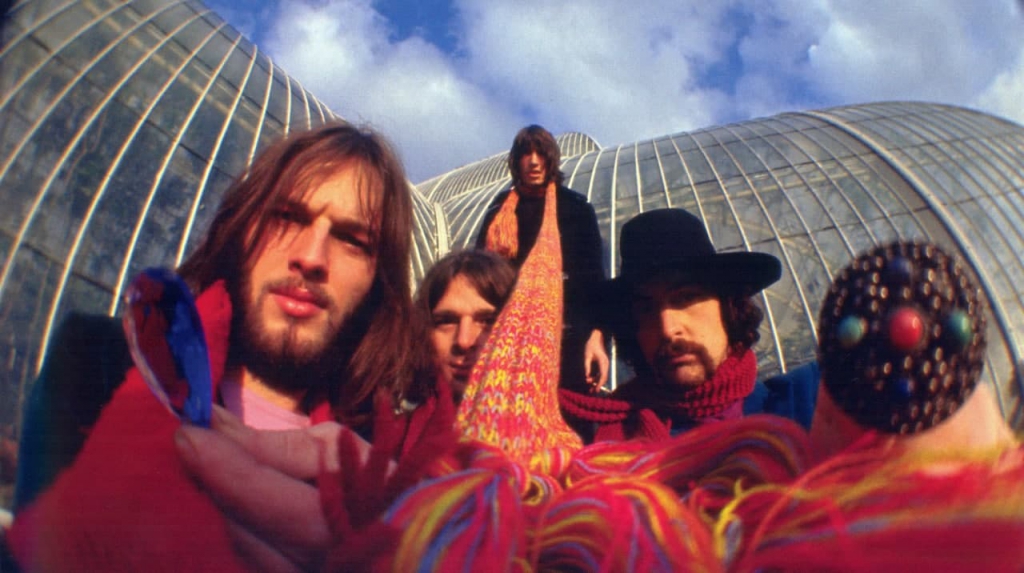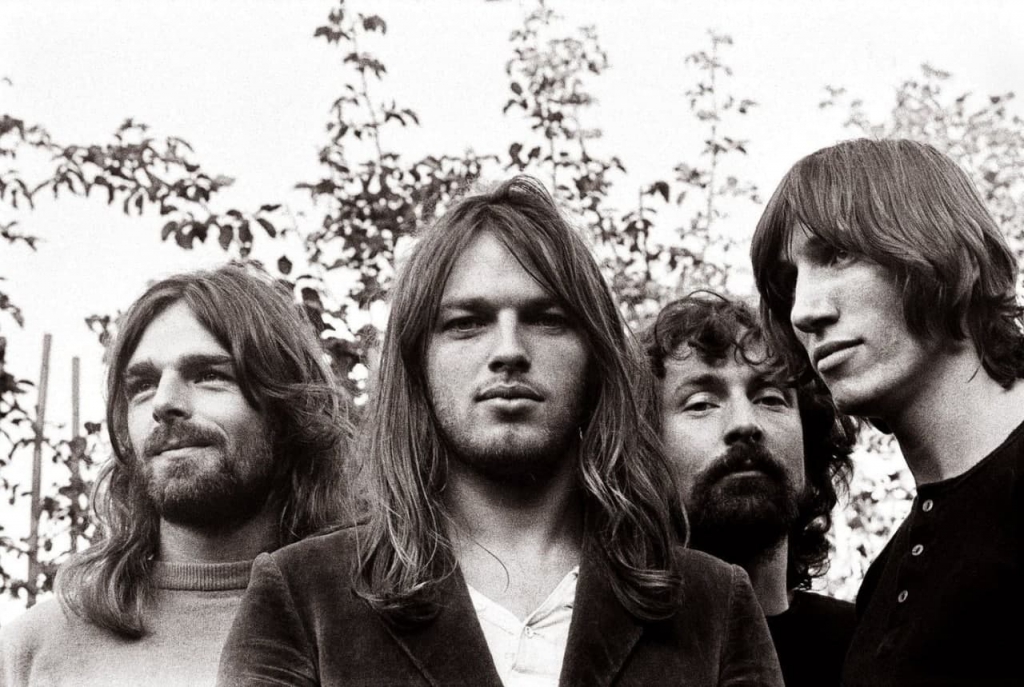‘The Wall’ still standing tall; Pink Floyd’s revolutionary album turned forty years old.
February 26, 2022 Barmia 15
On November 30th, forty years ago, the iconic rock band Pink Floyd released an album that still holds a special place in the world of music; a place not just in the world of rock music, but also in the classical genre. The Montreal Symphony Orchestra performed a classical version of this album in North America.
To commemorate the album’s 40th anniversary, special concerts have been held all over the world, and many European and American radio stations rebroadcast the album’s songs, much to the surprise of many audiences accustomed to listening to mainstream music.
“The Wall” and Pink Floyd may be known in the Western world as an album and a band whose era has passed and few people still listen to their music, but in many other nations, such as Iran, “The Wall” has never left the attention of music enthusiasts due to the album’s socio-political viewpoint.
Of course, there are other reasons for The Wall’s longevity, which are more related to the same Western perspective on measuring the success of this work; reasons like being at the top of the sales chart for 15 weeks, selling more than 25 million copies worldwide, and ranking 87th on the Rolling Stones’ list of all-time top 500 albums.
Pink Floyd’s 11th studio album, The Wall, is often regarded as “the end of Pink Floyd” among music historians. With the release of this album in 1979, the British band’s break-up was expedited, and the original members of Pink Floyd, who were a vital part of the music history of the second half of the twentieth century, only released two more albums together.
Although The Wall, like the band’s other albums, is a group work, most of its songs, story, and social theme are inspired by the views of Roger Waters, the band’s bassist. Many people believe that the album’s main character, a rock singer named “Pink,” was based on Waters’ own upbringing and life experience.
Why Pink Floyed made The Wall?

Pink Floyd was at the pinnacle of its success and popularity in the summer of 1977, and the two albums “Dark Side of the Moon” and “Animals” solidified the band’s position both economically and in terms of reputation. At that time, the first sparks of incompatibility between the group’s members were revealed.
More than any other member of the band, Roger Waters, wanted the band to stop or slow down the constant concerts, but the band was obliged to perform live at the Montreal Olympic Stadium in July of that year. During one of these live concerts, Waters expressed his displeasure with the audience’s lack of interest in the band’s music.
More than 80,000 people flocked to the Montreal Olympic Stadium on July 6 to see Pink Floyd perform. During the performance, a number of audience members ignited a fire and caused a ruckus, which Waters fiercely objected, resulting in him spitting on the audience. The band performed a couple more songs before concluding the event, although Waters stated afterward that he would have preferred to build a wall between himself and the audience in order to complete the performance effectively.
This was the motivation for Waters to recount the “Pink” narrative on the band’s next album. Pink loses his father as a youngster during World War II, his mother raises him with strictness, and his poetry are mocked by the teachers at school. Pink eventually becomes a rock star, but the popularity wears him down and he drowns in sorrow.
The Wall in condemnation of the East and the West

This fictitious theme may appear to be highly personal at first look, but it was the consequence of what became known in the bipolar world of the 1980s as a type of protest that attracted many supporters on both sides of the Iron Curtain. The album was lauded as a work criticizing the authoritarian communist system in the Eastern Bloc, and it became renowned as a work criticizing the capitalist and consumerist system in the Western Bloc.
Another factor that contributed to the album’s politicization was the events in South Africa. “Another Brick in the Wall” (Part II) topped the charts for three months in South Africa, which was still under apartheid at the time, six months after the album’s debut in Europe and the United States.
South African schoolchildren, troubled by racial inequality, sung the song in unison, shouting, “We don’t need no education, we don’t need no thought control.” On May 2, 1980, the South African authorities banned the song. The prohibition not only had little effect on the records’ success, but it also made “Another Brick in the Wall” into the soundtrack of South African anti-apartheid protests.
Aside from The Wall’s rich musical theme and structure, another factor that contributed to the album’s appeal was the 1982 musical movie directed by Alan Parker and starring Bob Goldoff. This cinematic effort is still remembered as a bitter and interesting film with an undeniable impact.
Although Waters did not initially enjoy Parker’s movie, it eventually severed ties with its soundtrack project and developed its independent identity over the years. Waters was dissatisfied with the movie because he believed the audience would not be able to identify with Pink, and Parker’s tale gave a reversal of Pink’s character.
Of course, now that the record has been out for forty years and the movie The Wall has been out for 37 years, not only no one pays attention to any of those fights, but this work has kept its position, both musically and cinematically. And throughout the years, both disbanded Pink Floyd members and other bands have performed the songs over and over again.
After more than two decades following Pink Floyd’s disbandment, each member of the band has gone their own way. Aside from Richard Wright, who died in 2008, the other three members have explored other solo musical endeavors. A cursory look at these actions reveals that Roger Waters not only did not renounce the social and political beliefs expressed on The Wall, but also continued to criticize Western world politics far more than when the album was released.
Waters is known in the music industry today as one of the pioneers in boycotting music concerts in Israel, for which he has been frequently chastised. He is also one of the few music stars to responded to the “coup” in Bolivia and the United States’ “domineering” operations in Venezuela and other Latin American countries.
-
The History and Evolution of Metal Wall Art
 No CommentApr 24, 2024
No CommentApr 24, 2024 -
Bohemian Rhapsody, Fiction vs Reality: 13 Times the Movie Lied to Us.
 15Apr 22, 2022
15Apr 22, 2022 -
18 incredibly intriguing and astonishing facts about elephants.
 15Mar 17, 2022
15Mar 17, 2022 -
‘The Wall’ still standing tall; Pink Floyd’s revolutionary album turned forty years old.
 15Feb 26, 2022
15Feb 26, 2022 -
Christmas Tree | Legends And History
 13Jan 14, 2022
13Jan 14, 2022







Absolutely mesmerized by the exploration of Pink Floyd’s epic album, ‘The Wall’! 🎶 This essay brilliantly captures the band’s profound impact on music and culture. Fun fact: Pink Floyd’s album ‘The Wall’ was partially inspired by Roger Waters’ feelings of alienation from audiences during live performances. Truly fascinating!
Wow, what an incredible dive into Pink Floyd’s masterpiece, ‘The Wall’! 🎶 This essay perfectly captures the album’s emotional depth and societal relevance. Fun fact: Did you know Pink Floyd’s album ‘The Dark Side of the Moon’ spent over 900 weeks on the Billboard 200 chart? Rock on, Pink Floyd!
Absolutely blown away by the insights into Pink Floyd’s iconic album, ‘The Wall’! 🎸 Their music resonates deeply, serving as a poignant reflection of society’s struggles. Pink Floyd’s ability to fuse profound lyrics with mesmerizing melodies is unparalleled. Here’s to the eternal impact of their music!
What an incredible tribute to Pink Floyd’s masterpiece, ‘The Wall’! 🎶 This essay perfectly captures the album’s impact and depth. As the band once said, ‘Music is a necessity. After food, air, water and warmth, music is the next necessity of life.’ Rock on, Pink Floyd!
Kudos on the insightful essay about ‘The Wall’ by Pink Floyd! 🎸 For further immersion, dive into Mark Blake’s ‘Pigs Might Fly: The Inside Story of Pink Floyd,’ a captivating book that delves deep into the band’s fascinating journey. Keep rocking and rolling with Pink Floyd!
The Wall: a timeless testament to Pink Floyd’s brilliance! This essay beautifully captures the album’s depth and impact. If you’re a Pink Floyd fan, don’t miss ‘Pink Floyd: The Wall,’ a surreal film adaptation that brings their music to life in stunning visuals. Rock on!
The Wall: a musical masterpiece that transcends time! Pink Floyd’s genius shines through every track, weaving a narrative that resonates deeply. From ‘Another Brick in the Wall’ to ‘Comfortably Numb,’ it’s a journey like no other. Long live Pink Floyd!
Pink Floyd: the ultimate sonic journey! Their music transcends time, painting vivid landscapes of sound. From ‘The Wall’ to ‘Comfortably Numb,’ their legacy lives on, shaping the very fabric of rock ‘n’ roll. Keep rocking, Pink Floyd!
Rock on, Pink Floyd! 🤘 Their music transcends time, painting sonic landscapes that stir the soul. Cheers to the band that shaped generations!
Cheers to ‘The Wall’ – an epic journey through sound and emotion! Pink Floyd’s masterpiece continues to inspire and resonate after four decades. 🎸🎵
Rock on, Pink Floyd! 🎸 This blog took me on a nostalgic trip through the legendary band’s iconic journey. Did you know that Pink Floyd’s album ‘The Dark Side of the Moon’ remained on the Billboard charts for a whopping 937 weeks? That’s over 18 years of chart-topping brilliance! Thanks for celebrating the timeless legacy of Pink Floyd and keeping the music alive for generations to come!
Fascinating read about Pink Floyd!
Their music is truly timeless, and it’s incredible to see how their work continues to resonate with fans across generations. Which Pink Floyd song is your go-to for a mood boost?
Can you believe it’s been forty years since ‘The Wall’ first graced our ears? Pink Floyd’s iconic album remains a timeless testament to their genius. Let’s raise a glass to the music that continues to inspire and resonate with generations. Long live ‘The Wall’!
Forty years of ‘The Wall’ and it’s still as powerful and relevant as ever! Pink Floyd’s masterpiece continues to resonate with listeners around the world, a true testament to its timeless brilliance. Here’s to another forty years of this revolutionary album shaping minds and inspiring generations!
Brilliant article. Comfortably numb is my all time favorite song.